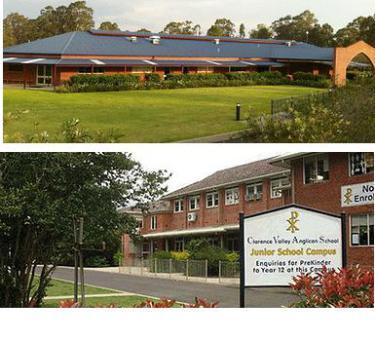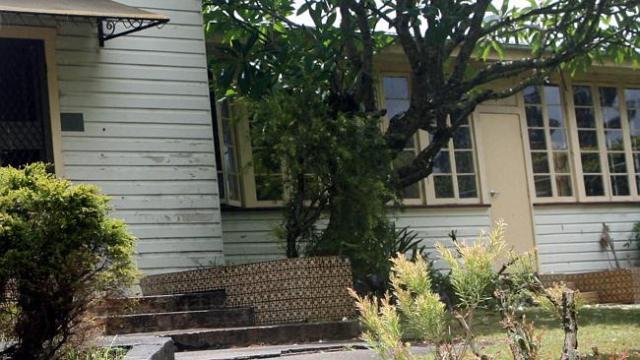Money Matters OR: Scarier Than HELL
Lewisblayse.net
The finances of the Grafton diocese of the Anglican Church (known elsewhere as the Episcopalian Church or the Church of England) came under the spotlight last week at the third “case study” hearings of the Australian Royal Commission into Institutional Responses to Child Sexual Abuse, concerning Allan Kitchingman and the North Coast Children’s Home. The diocese’s motto refers to “caring in the spirit of Christ”, but evidence suggests it was more in the spirit of Mammon, especially when it came to financial assistance for victims of its staff and clergy, who operated its North Coast Children’s Homes. Management courses always warn of the risk of over-expansion. Apparently, the Grafton diocese had not learnt this lesson. It went into debt of $12 million, through an unsecured loan from investors, to expand its Clarence Valley Anglican School, but found there were not enough enrollments to make it a financially viable venture. Diocesan Registrar, Anthony Newby, told the Royal Commission that, when he became registrar at Grafton in October 2010, the school debt was not being serviced. An oversight committee was set up to open lines of credit involving other dioceses – “not an easy task as only two, Perth and Adelaide, eventually came on board.” This strategy was needed because the Clarence Valley Anglican School loan was unsecured from the Grafton Diocese Investment Fund, which operated by inviting people to invest on the expectation of a return. The debt-reduction strategy would also mean selling at least $2 million of the diocese’s estimated $200 million asset base. Mr Newby said the group claim from the North Coast Children’s Home had been settled before he got there, and no money had been provided for further payments. When more claimants came forward in 2011, he was given to understand by Bishop Keith Slater (see previous posting) and Peter Roland, former lawyer for the diocese, that “a pastoral approach” was preferred. As Mr Newby’s background was corporate, he was not familiar with what this approach entailed. He said it was explained to him as someone “walking with” and supporting the victim. When he later saw another claim, not arising from Lismore, was being dealt with supportively, he became uncomfortable about how the Lismore abuse victims were being treated and voiced his concerns. When asked if he understood the debt took precedence over any provisions for future claims from abuse victims from the North Coast Children’s Home, Mr Newby said: “That was certainly the priority I was given. Yes.” He said that, by that stage, the Diocese was “mortgaged to the hilt,” adding that compensation payouts to victims are largely determined by the size and wealth of an individual diocese, and that victims can be unfairly disadvantaged if they come forward to a diocese that’s under financial strain. [It has been suggested in some submissions to the enquiry that a church-wide insurance fund be established to get around this problem, and ensure victims are treated equally across the different dioceses.] Explaining why, after the initial victim payments, further payments to new victims were not made, Newby said “I can’t recall exactly who said the word but my understanding was that it was a one-time deal. My understanding was from discussions that a pastoral approach was preferred.” When asked if that approach meant it did not include a financial compensation element, he replied “That’s correct.” Church official, Jennifer Woodhouse, described the first response by Pat Comben (see previous posting) as “caring and warm”, but said she found it remarkable and distressing that by 2006, after Mr Campion had unearthed several other victims, Mr Comben appeared “more concerned about the finances of the dioceses than he did about the many people who had been abused at the North Coast Church of England Children’s Home”. When she spoke to Mr Campion she found his mental health was in “very poor condition”. Ms. Woodhouse, a social worker, told the enquiry that she understood that, as an abuse survivor from childhood, the biggest difficulty Mr Campion would have had was trust, and having the Church treating him “in such different ways” would have badly impacted his trust once again. She felt that Comben’s response did not take into account the “psychological, emotional and spiritual impact the abuse had on Mr Campion”. It has become all too evident from various statements to the enquiry, that this debt problem was the main reason why the diocese was so reluctant to pay adequate compensation to its victims. Grafton Anglican church official, Pat Comben (see previous postings) informed the enquiry that he was aware of the school debt – an unsecured loan from the Grafton Diocese Investment Fund – but was assured the school would pay its way. “I walked past that school for a year and a half as a former minister for education, saying ‘There is no way that place is viable’,” he said. A 2006 letter, written by Comben, in which he told victim Richard “Tommy” Campion (see previous posting), that it was “difficult” to find the money to cover his travel costs to attend counseling, was tended to the enquiry as evidence. Mr. Comben admitted this was a lie. He admitted the diocese had cash assets of $2 million. “No, it was not an honest thing to say to Mr Campion. We were all scared, and I was conscious that I would not have been viewed well as an employee had I just gone in there and said ‘The diocese has $2m’,” he stated. Comben admitted that, when he took over financial administration for the diocese, he found the finances were not as bad as he first thought. He told the enquiry that he found money “squirreled away” at the diocese – “$50,000 here, $100,000 there in different accounts,” amounting to about $2 million, and assets of about $200 million. Comben also admitted that the “diocese was not keen to spend any money”. He said that he did not become aware of the likely $12 million loss over church trustees’ investment in the private school in Clarence Valley until late in 2006. Then he realized “there was a big problem”. When the church’s lawyers told him that sums as large as $4 million were possible for victims’ compensation claims, he told the enquiry that “We were overwhelmed and adopted a defensive approach”. Eventually, they paid out about $800,000, including legal costs. This approach prompted the victims’ lawyer, Simon Harrison (see previous posting), to describe the way the Anglican Church dealt with the claims as being the most “scurrilous and mean-minded” he had ever seen. Mr Comben said his own position was that Anglican Church standards and protocols for dealing with sex abuse victims “had become derailed once lawyers became involved”. Among the six principles of the official protocols was that victims should be given an assurance they would have recourse to legal advice and court processes at any time and that the “diocese would do nothing to stand in their way”. That principle was omitted from a letter diocesan lawyer Peter Roland wrote to Mr. Harrison. Indeed, the Anglican Church indicated it would invoke the statute of limitations, should the claims be taken to court, contrary to the official policy of the national church’s governing body. Comben claimed that, until he received letters from abuse survivor Richard “Tommy” Campion and his sister, he had “never even heard of the North Coast Children’s Home” and that a reluctance to respond at one point was due to an archdeacon of the church assuring him “nothing had occurred” and former residents of the home ringing to tell him “it was a great place”. Asked, at the enquiry, why he had described the original group claim of $4million against the Church as a “fishing expedition”, Rev Comben denied the suggestion that he was “deeply skeptical” about the plans and said he was only “a little skeptical”. When the commissioners said they were “very concerned” that the threat of legal action had seen Comben and his colleagues abandon Christian principals, he said he “certainly made a mistake” and the Church could “only apologize”. He said “one bit of defence” was that the threat the Church was facing – 40 litigants and multi-million dollar lawsuits – was “scary”. Apparently, for Mr. Comben and his partners in amorality, the prospect of ending up in Anglican Hell, was not quite as scary. [Postscript: The Grafton Diocese has issued a press release apparently distancing itself from the four former executives listed to appear before the commission next week. "All four former executives have ceased their professional ties with the Diocese," it said. Archbishop Phillip Aspinall continues to maintain his silence.]
|
.
Any original material on these pages is copyright © BishopAccountability.org 2004. Reproduce freely with attribution.

